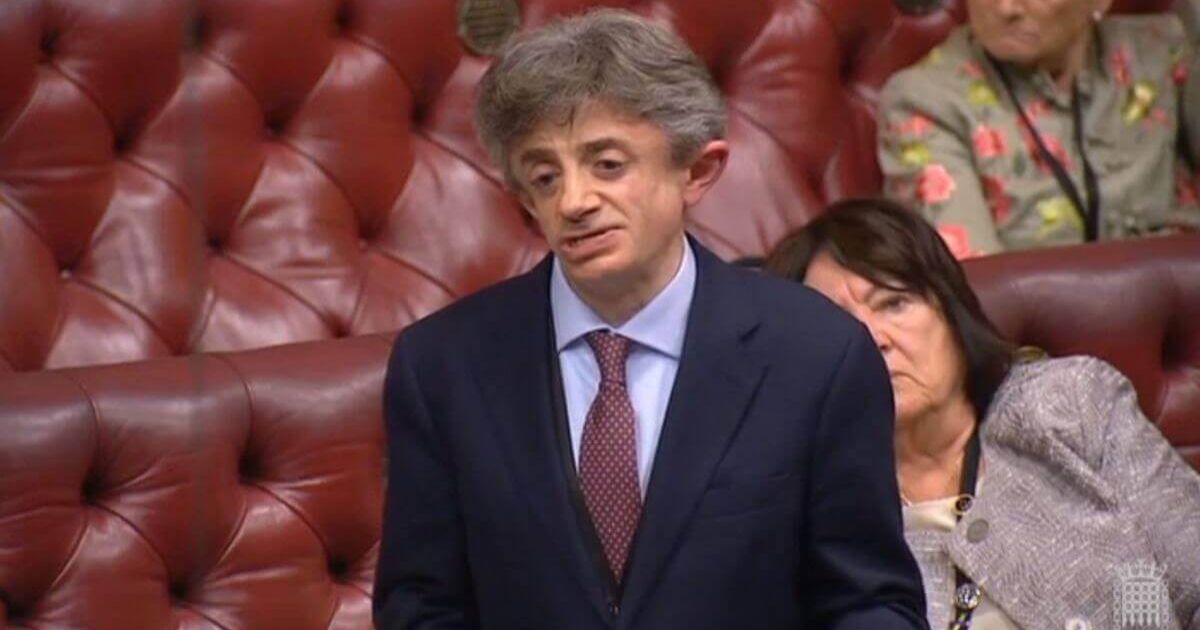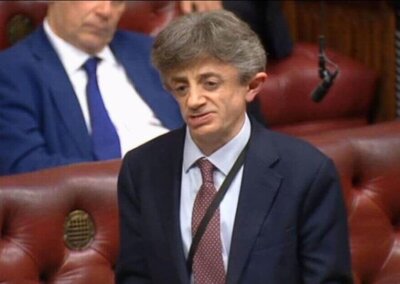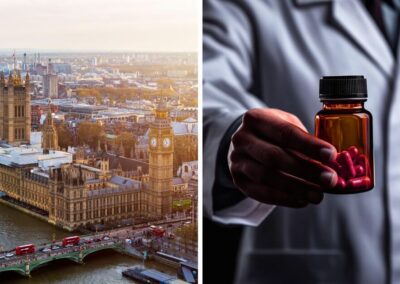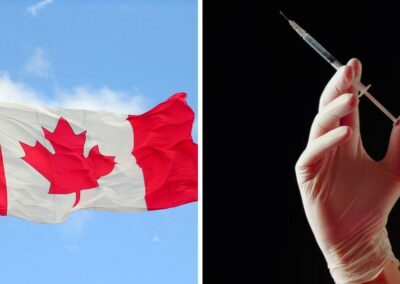A Peer with a disability has said the legalisation of assisted suicide “puts a price on my head”, as the Bill continues to make its way through the House of Lords.
Speaking during the second day of Second Reading of the assisted suicide Bill in the House of Lords, Lord Shinkwin, who was born with osteogenesis imperfecta, called the Bill “the stuff of nightmares”, saying, “There are savings to be made should assisted dying be introduced. This Bill effectively puts a price on my head”.
Lord Shinkwin continued, saying that should the Bill “become law and precedents set elsewhere apply in the UK over time, I face the realistic possibility, as a severely disabled person, of being killed as a result of legislation passed by this House”.
Shinkwin also highlighted the spoken contribution of former Prime Minister, Theresa May, who now sits in the House of Lords, in which she referred to the Bill as “the ‘Licence to Kill Bill’”. He said that Baroness May “is right: it gives the state a licence to kill the wrong type of people. I am the wrong type”.
“I wonder whether we have any idea of the Pandora’s box that the Bill will prise open”
Lord Shinkwin’s words came during a debate in which a strong majority of Peers spoke against the Bill, echoing the majority who spoke against it on the first day, a week prior.
Referring to jurisdictions where assisted suicide or euthanasia have been legalised, Lord Shinkwin warned of the dangers of the Bill for people with disabilities and other vulnerable people, saying, “I wonder whether we have any idea of the Pandora’s box that the Bill will prise open. Many noble Lords have referred to jurisdictions where assisted dying has already been introduced”.
“The precedents that those jurisdictions provide clearly show the chain of events that the Bill would set off, not just for disabled people but for older people, young people with mental health issues, and young women with eating disorders”.
Highlighting the fact that no major disability advocate groups in the UK – including Disability Rights UK, Scope and Not Dead Yet – support a change in the law to introduce assisted suicide, Shinkwin said “[N]o organisation of or for disabled people supports the Bill”.
Strong criticism for “Bill of death”
Lord Shinkwin was not the only public figure with a disability who spoke out against the assisted suicide Bill during the debate. Lord Mackinlay of Richborough, the first quadruple amputee to sit in the House of Lords, delivered an impassioned speech criticising the Bill, which he called “a Bill of death”. He argued that far more people would die under the assisted suicide Bill than Lord Falconer claims, and said we risk a slippery slope as has happened elsewhere. Concluding his speech, Lord Mackinlay said, “This is an unwholesome Bill, and I will oppose it”.
Of the 69 Peers who took a position on the Bill in their speeches, 45 (65%) spoke in opposition to the Bill and 24 (35%) spoke in favour.
This is the opposite of Second Reading in the House of Commons, where a majority of MPs spoke in favour of the Bill (25 spoke in favour, 21 spoke in opposition). This indicates that the House of Lords is likely to be significantly more opposed than supportive of the Bill, and given that the House of Lords can reject the Bill, the Bill is increasingly looking like it will never become law.
Spokesperson for Right To Life UK, Catherine Robinson, said “Lord Shinkwin is the latest in a long line of leading disability rights advocates who are highlighting the dangers of legalising assisted suicide for people with disabilities and other vulnerable people”.
“With society’s most vulnerable terrified that the assisted suicide Bill may become law, it is crucial that Peers now reject it, and that focus shifts towards providing high-quality care and support, rather than the dark and sinister path of assisted suicide”.












